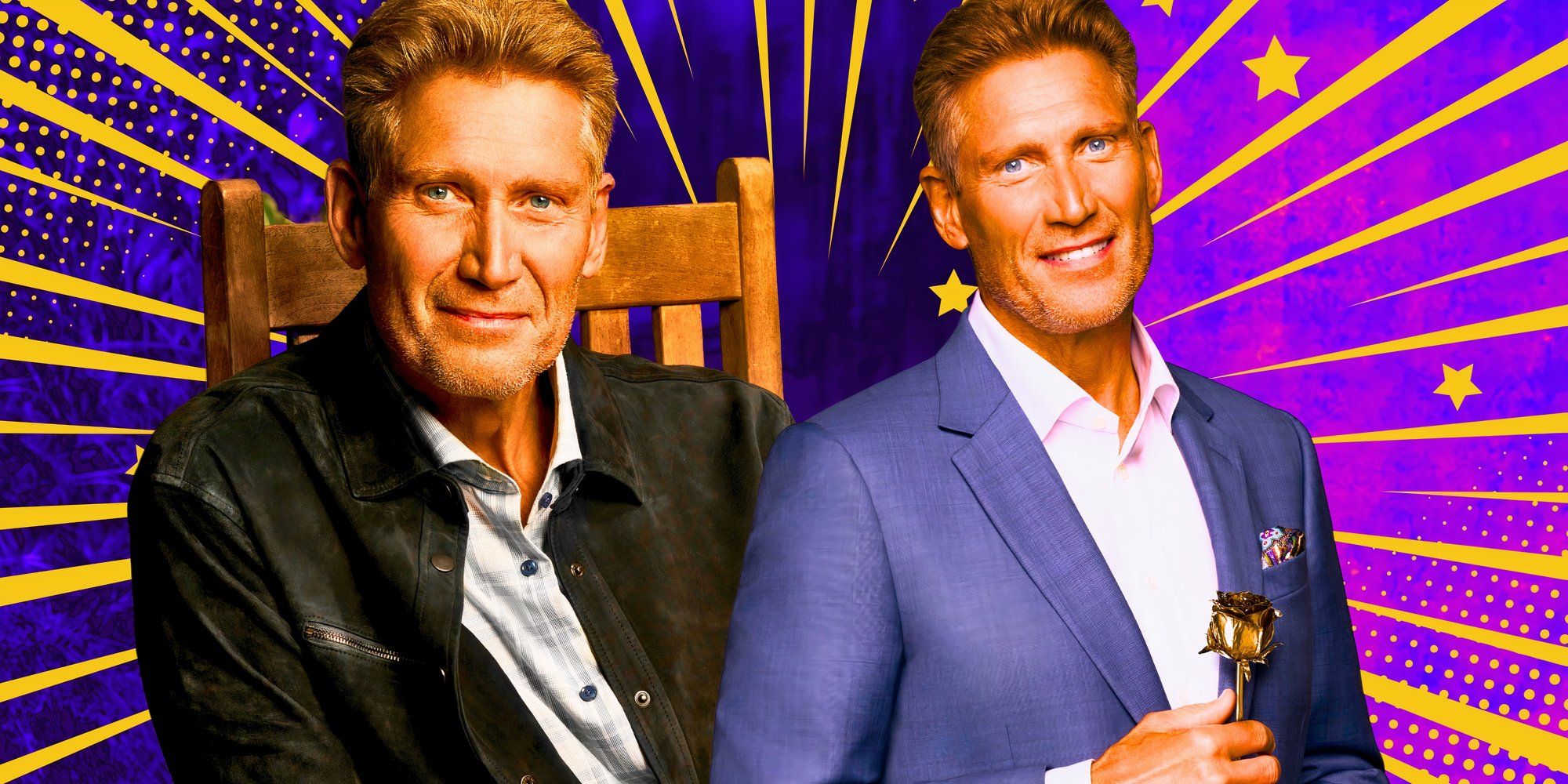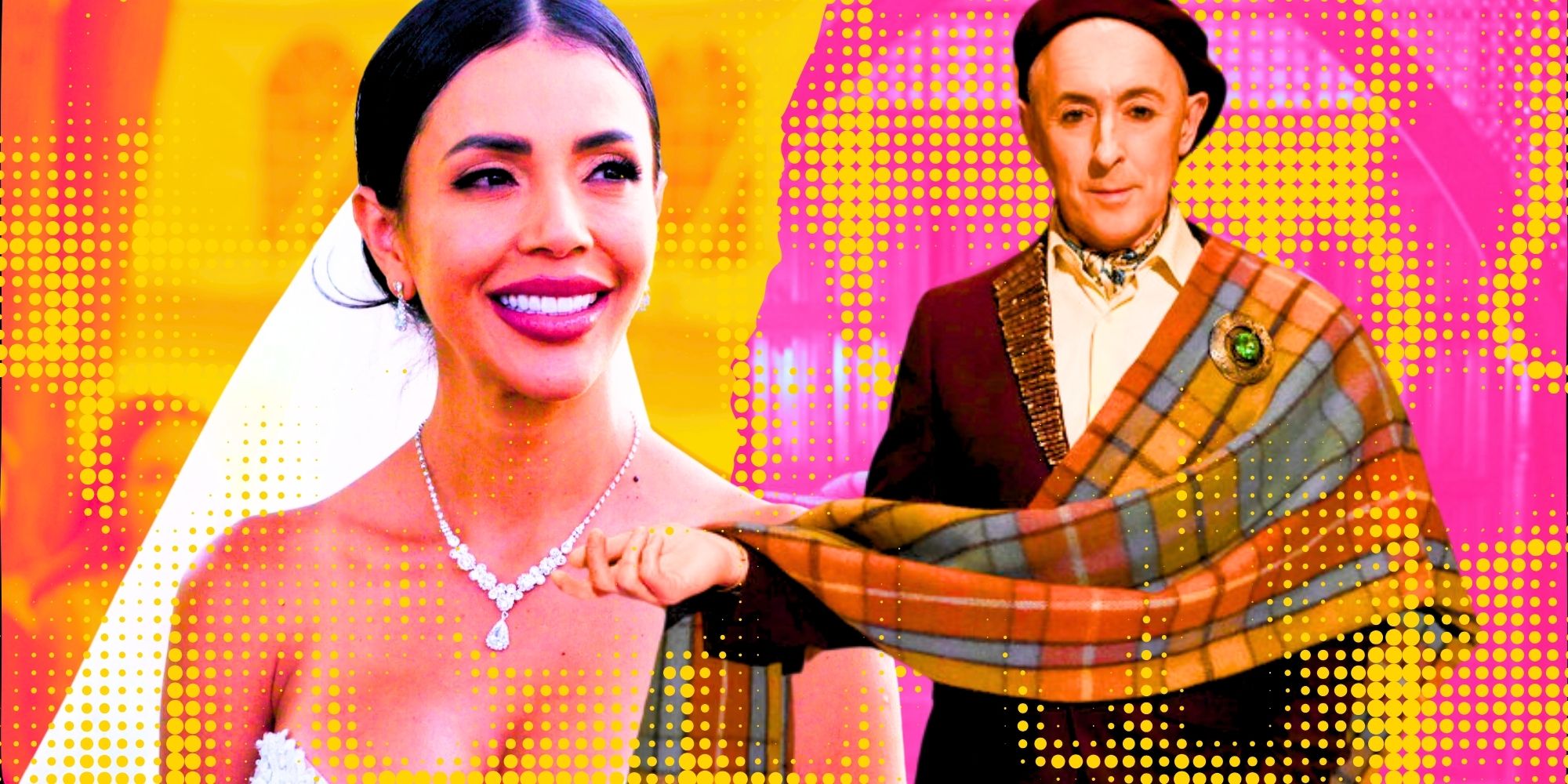Each year since 2014, the Observer New Review’s writers and editors have read scores of forthcoming debut novels from authors based in the UK and Ireland in order to spotlight the best; here’s our pick of 2024. As ever, our only guide was the quality of the books in front of us. This year’s list includes industry-tipped titles snapped up by big-spending publishers, but also a canny acquisition from a small independent press. There’s a third Book from someone already widely celebrated as a writer of short stories, and even a debut from an actual Observer journalist. These are simply the books we rated most – and we think you’ll love them too.
In previous years, we led you to Douglas Stuart’s Booker-winning Shuggie Bain, Gail Honeyman’s global bestseller Eleanor Oliphant Is Completely Fine and Sheena Patel’s cult indie hit I’m a Fan. Last year’s picks continue to hoover up honours. Tom Crewe’s The New Life won the Orwell prize for fiction, while Michael Magee (Close to Home) won the Rooney prize, awarded to an outstanding Irish writer under 40. Both writers are on the shortlist for this month’s Nero debut fiction prize, along with Stephen Buoro, another of our 2023 picks.
We could go on – K Patrick became one of Granta’s best young British novelists, Jacqueline Crooks was up for the Women’s prize, Moses McKenzie (on our list in 2022) won the Hawthornden prize – but isn’t what matters most the books themselves? From Vivaldi’s Venice to the Georgian civil war; from an all-female commune to a Call of Duty group chat; from a two-year-old’s temper tantrum to the small talk of small-town crooks avenging a bungled drugs run, this year’s authors know no bounds. Whether you’re in search of laughter or terror, a gritty dispatch from 21st-century Britain or a ravishing voyage into the past – quite literally, in the case of one genre-melding page-turner about time travel – another year’s excellent reading begins here. Anthony Cummins
Elizabeth O’Connor
Whale Fall (Picador, 25 April)
I’d take the washing up shifts no one else wanted so I could be at the back, jotting things down
Elizabeth O’Connor wrote Whale Fall in a cafe – but not, as you might expect, tapping on a laptop, nursing a coffee: she scribbled it on receipts and food order slips, while working in the kitchen. “I’d take the washing up shifts no one else wanted so I could be at the back, jotting things down,” she says.
If this makes it sound as though it was written in a hurry, nothing could be further from the truth. “It took four years to write, which sounds odd, since it is such a short book,” she says. “But I like to pare things down.”
Set far from any cafe, in an isolated island community off the coast of Wales, on the eve of the second world war, it’s an exquisite, evocative coming-of-age story that takes place in a world on the cusp of great change. The arrival of two anthropologists from the mainland to research a book on the island’s customs throws the inhabitants into disarray and gives the young protagonist, Manod, an opportunity to imagine a new life.
The story was inspired by O’Connor’s grandparents, both of whom grew up in remote communities – her grandmother in an isolated village in north Wales and her grandfather off the west coast of Ireland on the Blasket Islands, which were abandoned in the 1950s. “They both came to the mainland and lost the languages they spoke, Welsh and Gaelic. I was really interested in their lives and what that passage meant, and what it was like for them to make that move,” she says.
O’Connor, 32, was born in Birmingham, and studied English at Durham and King’s College London before returning to her hometown to complete her PhD in 2019. She has worked at the University of Birmingham ever since. A couple of years ago, she started learning Welsh and she weaves the language through Whale Fall to hugely atmospheric effect, along with Welsh folksongs, traditions and ancient beliefs.
With her novel running to just 207 pages, and not a word wasted, it’s no surprise that O’Connor cites Claire Keegan’s Small Things Like These as a major influence: “I love the way there’s nothing superfluous in her writing,” she says.
Your grandparents aside, what is it about littoral landscapes that fascinates you?
I wrote my PhD partly on this subject, and I love that the shoreline is this place that’s constantly changing, with tides always moving and shifting sands, and the animals and the flora that live there have to adapt to two environments and live in both and in between. Manod herself lives in between two worlds, and is trying to be part of both and part of neither. On another level, I think the shore has real implications for now. With climate change, the shoreline is very vulnerable. It’s where we see rising seas and waste and plastic piling up. Culturally, our shoreline feels significant, too. When you look at how the far right talked about Brexit, and now talk about immigration, being an island seems to be part of how we are quite stuck in the way we define ourselves and our national identity. So, in the novel, those are ideas I’m really thinking about.
Is there much of you in Manod?
There probably is. Her yearning, her wish to do something with her life and being quite headstrong probably comes from me – the me that was scribbling in the cafe, thinking: “Get me out of here.”
Are you working on a second novel?
Yes, and it’s back in the world of dog shows [O’Connor won the White Review prize in 2020 for a short story about a dog show]. I have always loved dogs and, growing up, with Crufts taking place in Birmingham, I used to go every year. Now I’m older, I’m really interested in the human part of that relationship and what it’s like for your world to revolve around an animal.
Interview by Lisa O’Kelly
Colin Barrett
Wild Houses (Jonathan Cape, 25 January)
There’s violence, but it’s about etiquette – it’s like a Jane Austen novel

Colin Barrett, 41, is the odd one out on this list: his debut novel, Wild Houses – a dark comedy about a gangland kidnapping in rural Ireland – is actually his third book, but that didn’t make it any easier to write.
Set over three days and 200 pages, it took him eight years and always felt, he says, “a first-time effort”. Seeking the density of the stories in his acclaimed collections Young Skins (2014) and Homesickness (2022), likewise set where he was raised in Co Mayo, Barrett overstuffed an early draft with every viewpoint of its large interconnected cast, from the Ferdias, feared local hardmen, to Doll, the teenage wide boy they abduct after his older brother bungles a job.
“You only get a slice of life but you want the sense of relationships going way back to past generations. I wanted that weight – but not literally,” says Barrett, who freed the book from stodginess by rewriting it from just two perspectives, that of Doll’s ill-used girlfriend, Nicky, and the Ferdias’ reclusive cousin Dev, who finds himself Doll’s unlikely captor. Party to the book’s violence without driving it, the duo let Barrett tell the story slantwise and focus on the kind of moral ambiguity that most fires him up. “There’s a way you’re meant to act and there’s how you actually act; I’ve always been interested in that.”
Deadly serious about the complexity of violence, Wild Houses is also very funny, something Barrett attributes to the Mayo temperament. “There’s a wickedly dry humour that punctures any situation, no matter how dramatic. Even the Ferdia brothers refuse to be complete villains. They’re like: we should’ve done a shop before we brought the young fella here.”
Barrett knew he wanted to write from his early teens, but it took another decade for him to see the material under his nose; growing up, he avoided Irish writing, seduced by the glamour of US writers such as Thomas Pynchon and Don DeLillo. He’s tickled to think that, after the success of fellow Mayo writers Eimear McBride, Mike McCormack and Sally Rooney, his home turf might now hold the same allure: “Like, there’s some dude in Philadelphia reading Normal People and thinking, oh my God, Mayo, I wish I was there!”
Is Wild Houses a crime novel?
I have no problem with it being categorised [as crime] but this haphazard kidnapping plot by these lads was really just a way to get the characters in rooms having conversations. There’s violence, but it’s about etiquette – it’s like a Jane Austen novel. Back when I was 14 we didn’t have the word frenemy. It was just like: “Ah, they’re your mate! They beat your head in some, but they’re your mate!” Plunging into those grey areas is what I’m interested in.
How did you get your start in writing?
Through magazines: there’s a really good journal culture in Ireland. Flicking through the Stinging Fly in a bookshop, I thought: it’s feasible, I can try to finish a story and send it to this magazine that’s publishing people here and now. It wasn’t so daunting as having to get an agent or trying to get a big publisher in another country.
What explains the sense of community in Irish writing?
It sounds sickening but we want one another to succeed. I did a master’s at UCD [University College Dublin] and everyone was sound. You hear horror stories of fancy MAs and MFAs in the States or in England: Brandon Taylor’s great novel The Late Americans opens with this MFA scene that’s just an absolute dogfight. Education is so expensive there that you’re going to have this competitive element. In Ireland, third-level education is generally heavily subsidised. I wrote [my first book] on the dole in a box room, getting the odd bit of Arts Council funding. These things ease the financial pressures which then don’t impact your relations with other people; you can see someone getting published and just be happy for them, you know?
Interview by Anthony Cummins
Elle Machray
Remember, Remember (HarperNorth, 29 February)
Initially the novel was a lot darker, but I wanted it to be a story of resistance, not trauma

Elle Machray’s enthralling debut came to life in an unconventional way. They were on the sofa with their partner playing a game of “what if” and landed on the idea – “what if someone tried to recreate the gunpowder plot?” After finishing the first draft within three months, a friend messaged them out of the blue and suggested that they enter a pitch competition on Twitter (now X) for writers in Scotland. “I sent my pitch out. The tweet was liked by a couple of agents, and also by HarperNorth. So I sent them my first three chapters and they offered me a contract.”
Born in Birmingham, Machray, 29, studied politics at Leeds University and graduated in 2017 before moving to Scotland with their partner. They work in cybersecurity for a supermarket, and only began writing fiction in May 2020. “I expected to be writing and trying and being rejected for a really long time before I got anywhere, and for it all to happen so quickly was just unbelievable.”
Set in London in 1770, Remember, Remember is a cautionary tale, based on a real one, which follows the resolute Delphine, who works tirelessly to free her enslaved brother through Britain’s court system. The story is inspired by the real life 1772 Somerset v Stewart case, in which it was ruled that an enslaved black man on English soil could not be forcibly sent to Jamaica to be sold. When justice falters, Delphine plots to burn the whole empire down.
How did you come up with Delphine?
Delphine was one of the hardest characters to write. So many of the other characters are inspired by real people; Delphine is a little like all of the different matriarchal women in my family. She is a healer. She’s the person that has the cup of tea. The person that is always there and rooting for you. I was also very aware of how black women have historically been told to suppress their anger, and yet anger is used as a tool against us. I wanted to create a character that was fiercely compassionate. Someone who really values human life. Someone who wants to do the right thing, and I wanted to show how far they can be pushed before doing something terrible.
How did you manage the historical research?
It was hard. We are not taught an accurate history [of the transatlantic slave trade]. It’s so hidden. [But] what has been written about that time period, the reports of people being bought and sold and transported, was really difficult [to read]. Initially, the novel was a lot darker, but I wanted it to be a story of resistance, not trauma.
How do you navigate writing as someone with ADHD?
I’ve always been able to hyperfocus on things that I am interested in, but in terms of being able to sit and do something for a really long time, I struggle. ADHD can some feel like a superpower, some a curse. You see every step that you need to do to be able to complete a task and it stops you doing anything. But the thing I love about writing is that it is one word at a time. I can break it down into a sentence. I can break it down into a paragraph. I can’t do things like write 1,000 words a day or write five pages a day, but since learning that I have ADHD, I’ve been able to build structures and trick my brain into doing things more successfully.
What are some of your favourite debuts?
Homegoing by Yaa Gyasi. Kaikeyi by Vaishnavi Patel. The Sweetness of Water by Nathan Harris and The Familiars by Stacey Halls.
What are you working on next?
A reimagining of Miss Havisham’s life. What if Miss Havisham’s heart was broken by someone else? And what if that person was a woman?
Interview by Kadish Morris
Nicolas Padamsee
England Is Mine (Serpent’s Tail, 11 April)
Probably the strongest sense of belonging I’ve ever felt has been in the sway of a Libertines concert

A politically engaged, urgently plotted coming-of-age thriller with a wicked satirical streak, England Is Mine – the debut novel by Essex-raised writer Nicolas Padamsee – digs into the grim world of online neo-nazism via the story of David, an Anglo-Iranian A-level student and music lover at odds with his right-on peers over his loyalty to a Morrissey-ish singer-songwriter, cancelled after a bigoted rant.
The book sends up Twitter-era controversies over free speech while keeping in sight the emotional stakes of a subject often dominated by bad-faith argument. David’s terrifying, heartbreaking descent – from seeking solace in first-person shooter game Call of Duty to wielding an actual gun – was, for Padamsee, a nightmarish thought experiment by which he pictured losing the hard-won sense of identity that music gave him as an unrooted teenager from a German-Indian household.
“Probably the strongest sense of belonging I’ve ever felt has been in the sway of a Libertines concert, hugging strangers, falling on the floor, being picked up by them,” says Padamsee, 33. “For someone [in that position], the stakes can be very high if mainstream society says you should stop listening to this artist. For David’s friends, it might only be like swapping Adidas for Nike, but he’s built his identity around this [singer] – if they take it away, what’s going to replace it?”
The radicalisation of a second-generation immigrant was, he knew, the territory of names such as Hanif Kureishi, Guy Gunaratne and Kamila Shamsie, but Padamsee spied a gap for exploring the internet’s role in 21st-century extremism. Signed within days of his agent submitting it to publishers, the book was drafted over three years of study at the University of East Anglia; hoping to appeal not only to his well-read supervisor but also the friends he’d made over the years playing video games online, Padamsee sought the tang of early Michel Houellebecq (“some people might sympathise with the ogreish elements of his characters, others see them as total satire”) as well as Irvine Welsh’s ability “not to speak over his characters”.
Behind everything lay the memory of a few days Padamsee spent in his mid-teens in the uneasy company of Raskolnikov, the murderous antihero of Dostoyevsky’s Crime and Punishment. “I wanted you to come along a few steps, then be pushed away, then come along again; for the reader, and myself, to be questioning herd thoughts.”
Did you ever want to be a singer yourself?
I’d have loved it. I wrote a lot of lyrics in my teens, but I absolutely cannot hold a tune! After a while I had to accept it’s not happening.
What was the hardest thing about writing England Is Mine?
Making video gaming interesting on the page to somebody who’s not in the moment frenziedly racking up kill streaks. Getting those scenes right required a lot of chiselling – and actually a lot of playing Call of Duty again.
Now that you’ve written it, do you find yourself anxiously looking at the headlines?
I try not to think about it. There can be that confluence when you’re engaging with dangerous ideas; Houellebecq’s Submission came out on the day of the Charlie Hebdo attacks. But there’s a serious challenge in these waves of radicalisation. To counter it, we need to understand it. Psychologists and sociologists have data and statistics but entering into the head of a far-right radical is something they can’t do. There’s an irresponsibility in the medium of the novel and for novels to have their own terrain in society, they need to exploit that. AC
Kaliane Bradley
The Ministry of Time (Sceptre, 14 May)
Redrafting it was often torturous, like trying to do tap dancing with your ears

Kaliane Bradley, 35, studied English literature at university and graduated to work in publishing, but it was seeing Punchdrunk’s immersive theatre production The Drowned Man that made her want to write. “It was such a beautiful experience I thought: God, if I can’t create something, what’s the point?” she recalls.
Over the course of a decade, she found some success with individual short stories but four finished novels went nowhere. Then, cooped up indoors during Covid lockdowns, she visited a Wiki fan page for Ridley Scott’s The Terror, a TV drama she’d started watching, becoming enthralled by a minor character, the doomed Victorian polar explorer Graham Gore. “He immediately jumped out as the most fascinating, reassuring, charismatic person,” she says.
To entertain fellow devotees she’d met online, she wrote a series of skits imagining what Gore would make of Spotify and other features of 21st-century life. It was more pandemic parlour game than literary endeavour, yet those short pieces have gone on to become The Ministry of Time, in which Gore is expatriated to contemporary London as part of a government-run time-travel experiment. To ease his transition, he’s assigned a “bridge”, a civil servant who lives with him and also narrates the novel. She’s unnamed, but like Bradley is British-Cambodian. With a thoroughly offbeat love story at its heart and subtly interwoven musings on the UK’s imperial legacy, it’s fast moving and riotously entertaining, a genre-busting blend of wit and wonder. Plans for a major screen adaptation are already moving swiftly after TV rights were sold in a 21-way auction.
When did you realise you were writing a novel?
It was pure pleasure, but about halfway through what became the first draft, I realised it was something more. From there I had to retroactively construct the universe in which the book is built, which is one of the reasons why redrafting it was often torturous, like trying to do tap dancing with your ears.
How did the character of the bridge evolve?
At the same time as writing this I was trying to write a “serious novel” about the Khmer Rouge and the Cambodian diaspora. It’s a dead piece of prose, but I had a character in it who’s mixed-race and white-passing, and who shared with the person the bridge would become this very particular relationship to the British state, and the ways that power and control are grasped. So I basically lifted her wholesale out of one novel and put her in another.
Do you have a writing routine?
I write in the evenings, three to four a week, usually for an hour or two. I’ll produce 400 words that I don’t look over much, because doing so will destroy my ability to continue.
Any advice to share?
My agent told me to take my writing seriously. I have a tendency to want to turn everything into a joke, but it’s also an invitation to take yourself seriously as a writer, which can feel arrogant but is really valuable.
You’re a publishing editor by day. Does that help or inhibit your writing?
It’s comforting, being aware of people having the same problems and knowing that I’m a link in a chain, not some kind of exceptional mushroom growth.
Name some of your favourite authors.
I love Terry Pratchett and I’m very fond of Graham Greene. Muriel Spark is someone I’ve adored, and China Miéville writes at a level of extraordinary brilliance.
Have you described yourself as a writer yet?
In the taxi to this interview that I was so terribly late for, when the driver asked me what do you do, for the first time in my life I said I’m a writer. I immediately thought that’s bad karma, and sure enough we had traffic all the way. I don’t know if I’m going to say it again – maybe after publication.
Interview by Hephzibah Anderson
Leo Vardiashvili
Hard By a Great Forest (Bloomsbury, 30 Jan)
I have always aspired to make readers cry and laugh at the same time

“War trumps most things,” Leo Vardiashvili observes early on in his poignant and often painfully comic novel about the effect of violence and conflict on those who must live through them. Vardiashvili came to London as a refugee from Georgia aged 12 and his family settled in Tottenham in north London. Hard By a Great Forest is about a young man called Saba, also from Georgia, also living in London, and it follows his return to Georgia to find out what has happened to his father and brother who have been missing since they went back.
The ways in which war displaces and upends family is central to Vardiashvili’s story, which he expresses in some surreal style. Saba has conversations with dead friends and relatives who both nag and guide him; he must navigate a flood that has liberated wild animals from Tbilisi zoo – rhinos block the roads and wolves roam menacingly as he struggles with a series of slippery clues left by his relatives.
The book owes more than just its title to Hansel and Gretel and Vardiashvili cites fairytales as a key influence. His father was something of a playwright, his mother a teacher, and books were everywhere as he grew up. His passionate attachment to words and family is touchingly and literally written all over him. Spiralling around one arm is the final letter he received from his grandmother before she died. “It’s a sentimental story,” he says. “She stayed behind when we left and I never got to see her again. I went to a tattooist and asked them to do this… in her handwriting! We were very close.”
He lives in Birmingham now with his fiancee, returns to Georgia often (his book has been translated into Georgian), and is currently at work on a second novel (writing around his job as a tax adviser).
Why did your family leave Georgia?
The civil war in 1991 created utter chaos and the aftermath was horrendous. In the power vacuum left by the Soviet collapse, all order fell apart. The economy collapsed – Soviet rubles became nearly worthless overnight (we spent the money my grandma was saving for me for a decade on groceries). Food was scarce, there were long periods without electricity, water or gas. Worse, there were no prospects for education, jobs, or much else.
What was it like to pitch up in Tottenham as a 12-year-old?
Well, I didn’t speak much English. I distinctly remember practising how to ask for a Coke before going to the corner shop. Then quickly realising that in a corner shop in the UK you can just grab it! I missed all my friends; I went straight into year 8 at a comprehensive and it was rough. They were understaffed, not much money – they didn’t really know what to do with me. I would be at the back of the class with the [course] book and a dictionary.
Which books and authors do you admire?
The fairytales definitely snuck into the novel. But the biggest influence, and I didn’t realise that this was a debut, was One Flew Over the Cuckoo’s Nest. That book made me cry and laugh at the same time and I have always aspired to do that in my writing. I am also obsessed with Cormac McCarthy.
Did doing an English literature degree (at Queen Mary, University of London) make you want to write?
I already knew I wanted to write well before then. But university taught me how to read well.
What has being a tax adviser taught you?
That taking large amounts of complex tax information and boiling it down into a slick, concise document ready for the client is a very valuable and transferable skill. It taught me how to take a whole page of my own rambling draft, look at it closely, analytically, and then cut and edit it down until only the essence remains.
Interview by Ursula Kenny
Andrés N Ordorica
How We Named the Stars (Saraband, 4 July)
By the time I was on draft five I had nothing to lose

Andrés N Ordorica’s book How We Named the Stars takes a familiar genre – the campus novel – and joyfully updates it for the 21st century. The hero, Daniel, is a scholarship student at the fictional Cayuga University in upstate New York. The book is largely written in the second person, addressed to his first love – all-American room-mate Sam – who we know from the start has died in tragic circumstances. Ordorica is of Mexican heritage and grew up in the US, before moving to Edinburgh, where he works at the university, designing online courses. He is 34 and has previously published a book of poetry, At Least This I Know.
How did you come to write the novel?
It was a kind of long process. I wrote a novel with Daniel and Sam as the main characters and I sent them off and got shortlisted for some prizes. I worked with some amazing teachers and mentors and I tried to take on board all the feedback I got, but I could just feel that something wasn’t working. Then Caro [Clarke], now my agent, got in touch with me, they said they liked my poetry and heard I had a novel in the works. By this time I was on draft five. I had nothing to lose. And I went back and forth with the agency, rewriting chapter by chapter for them. It was like Dickens, writing a serial novel. And finally, it came together.
The novel has already garnered extraordinary plaudits in the US and now in the UK. How has the lead-up to publication been for you?
It’s still sinking in. It is all going so fast and feels very surreal. My mind is having to move much faster than it usually does but I’m really just trying to enjoy the ride.
You went to university in upstate New York. How much is Daniel a reflection of your own experience?
I was riffing off my own experience of going to university as a first-generation student. Like Daniel, my parents were teenage parents. They didn’t go to university. It felt like a great place to examine some of the difficulties and contradictions that face someone who is coming from a marginalised background. It does feel like there’s a kind of tension in many places, particularly the prestigious universities, between a wish to drive diversity and the need then to take care of their marginalised students.
Were there any particular writers who inspired you?
As I was finishing this novel, I was deep into reading every Edmund White and Christopher Isherwood novel that I could and I was rereading a lot of Alan Hollinghurst and James Baldwin. I don’t ever like to think that [I might be] a great writer with a legacy, but it is more that I am a gay male novelist coming out with a book that will sit as part of this wider queer canon.
You’ve been in Edinburgh for six years now. Has being in Scotland changed you as a writer?
You mean beyond the weather? I’ve found a great community in the Scottish BPOC Writers Network, which is an amazing organisation that works with black Scottish writers and writers of colour living in Scotland. I’ve wanted to be a writer ever since I was like five and I’ve really tried to work hard at it continuously, but I think being so very much welcomed within the Scottish literary and publishing scene is ultimately what gave me the tools to get this novel out.
Have you started your next book? Is it a novel or poetry?
First, I advocate rest, everyone. But I actually have just finished my second poetry collection and yesterday I finished the latest redraft of novel number two.
Interview by Alex Preston
Harriet Constable
The Instrumentalist (Bloomsbury, 15 August)
I’d dance around the living room…cajoling the book out of the ether

Back in 2019, the London-based journalist and documentary-maker Harriet Constable was reading and stumbled upon a reference to orphaned girls who were taught music by Antonio Vivaldi at Venice’s Ospedale della Pietà. Digging deeper, she encountered the maestro’s star pupil, a violinist named Anna Maria, whom he had in mind as the soloist for numerous concertos including, it’s been suggested, The Four Seasons.
After extensive research, Constable made up her mind to tell Anna Maria’s story through historical fiction. Determined to get it right and having never written fiction before, she fashioned an ad hoc creative writing master’s, immersing herself in primers such as Stephen King’s On Writing, and working on a shorter story, striving to make all her missteps in one manageable project that she had no intention of submitting. Only then did she clear her schedule and head to Venice for a month to begin her first draft. “Arriving was like stepping on to a set,” she says.
The result is The Instrumentalist, an immersive, impassioned tale full of colour and sound that depicts Anna Maria as a driven prodigy whose talent will empower and imperil her. It won 34-year-old Constable a two-book, six-figure publishing deal and she’s now writing full-time, already at work on her second novel, which promises to bring to life another musical heroine lost to history.
You wrote 2,000 words a day when you were working on your first draft. How did you manage it?
I’d put The Four Seasons on and go out for a walk or dance around the living room, some conducting as if I was Vivaldi, cajoling the book out of the ether. Then I’d storm up to the laptop and start writing. Anna Maria, I felt certain, had a lot of energy, so I only ever wanted to come at the writing with energy.
Was there a moment when Anna Maria came alive for you?
When I was still researching, I started seeing a woman walking away from me down this candlelit stone corridor. She got faster and faster, like she was running to a concert. After about two months, she turned to the side, and in silhouette, said all sorts of intriguing things about how she wanted the music to pour down my throat so I could understand what it was like to be her. I took a lot of that in terms of the intensity of her relationship with music – music for these girls was the difference between glory and the abyss.
You play piano and had flute lessons as a child. Any plans to take up the violin?
I hired a violin teacher for research, originally to give me violin lessons, but we quickly discovered that was going to take too long, so I just asked her to play certain pieces for me and then sat back like a kind of goddess creature.
Which historical novels have you found most inspiring?
Maggie O’Farrell’s Hamnet blew me away in terms of what could be possible in an imagining of history. Also the opulence of Patrick Süskind’s Perfume, and the calm, simple clarity of Tracy Chevalier’s writing. The Queen’s Gambit by Walter Tevis was a big influence as well.
Do you have any advice for aspiring novelists?
Being led by your emotions can be incredibly powerful, picking stories because you are so moved by anger or excitement. That’s when you know you’ve got something and you’ve got to crack on – but it is a lot of work, so best to accept that and just start. HA
Amy Twigg
Spoilt Creatures (Tinder Press, 6 June)
You can’t be afraid to rework… you have to be comfortable killing your darlings

Growing up in the Kent Downs, Amy Twigg developed a taste for eerie tales. “There was a big history of witchcraft, and that’s really stuck with me,” she says. The county provides the setting for her lyrical, perceptive first novel, Spoilt Creatures, which takes its title from a letter between Virginia Woolf and Vita Sackville-West and won the 2021 BPA pitch prize. Iris, the protagonist, finds herself drawn to the mysterious Hazel, and follows her to an all-female commune. At first it feels like a haven, but the veneer of civility gradually slips away.
Twigg, 33, is now based in Guildford, where she works as a freelance copywriter. After taking the Curtis Brown Creative novel-writing course, she started writing during the pandemic against a backdrop of hostility against women: the overturning of Roe v Wade, violence against transgender people. “I wanted to explore the idea of this all-female space and whether we can be free from violence or be perpetrators of it,” she says. The novel skilfully examines themes of internalised misogyny and the popularity of true crime, but at its core it is about Iris and Hazel. “As I was writing, the way I wanted to express my sexuality changed, and their relationship is reflective of that. It’s about seduction and obsession. I wanted it to feel quite ambiguous, as if anything could happen between them.”
Did you always want to be a writer?
I think I’ve always known. One of my earliest memories is of my mum making up stories from our bathroom tiles, which had pictures of cottages on them. I also feel like writing is probably one of the only things I’m actually good at.
Did you have a writing routine?
For my own sanity I had to be very rigid. During lockdown, when work stopped for me, I treated writing like a nine-to-five job. I wouldn’t leave my desk until I’d achieved a certain number of words. I keep quite a rigorous spreadsheet of chapters and characters and various ideas I can then structure the plot around. Free writing scares me too much: I need to have the beats, to know what’s coming next.
Do people tend to assume the book is based on your own life?
I’ve had people ask me if I’ve ever been in a commune or a cult – the answer is no – but I did extensive research. More than anything, the book is about the experience of being a woman living under a patriarchy. I certainly draw on my own experiences, and a lot of them made it into the novel, but I won’t say which ones.
What do you think of publishing in 2024?
It’s a very competitive industry, and it feels like writers are constantly being squeezed in terms of advances. It’s practically unheard of now to be a full-time writer. I don’t know if publishing can sustain itself like that. But one thing I’m really happy to see is more working-class novelists coming to the fore. I have a working-class background, and for many years I thought and was told that this industry just wasn’t for me.
Which writers are you most inspired by?
Shirley Jackson. I love her work. Sisters by Daisy Johnson. And I will read anything that Sophie Mackintosh is prepared to write.
What advice would you give to aspiring writers?
You have to put the time in, and you can’t be afraid to rework and rewrite. When I finished the first draft, I knew it wasn’t right, so I deleted it. Then I wrote another 90,000 words: it was better, but still not there. And I deleted that draft as well. You have to be comfortable killing your darlings – that’s the only way you excavate the real meat of the novel.
Interview by Kathryn Bromwich
Tom Lamont
Going Home (Sceptre, 6 June)
I realised I didn’t need to write fiction that had a great social message

You might already know the Guardian and Observer journalist Tom Lamont for his long reads on diverse topics from fish and chip shops to vending machines and Nazi hunters, but before the day job kicks in – before his second morning coffee – he’s also been writing fiction. His debut novel, Going Home, is a meltingly warm comedy centred on two old school pals recently turned 30: Téo, a road safety instructor, and Ben, a pill-guzzling, pec-flexing casino owner. When Téo makes a rare visit to his boyhood home to check in on his ailing father, he’s blindsided by the death of a classmate both he and Ben fancied – and suddenly finds himself in sole charge of her two-year-old son.
Lamont, 41, wrote the book in a year, beginning in autumn 2021 after the rejection of two prior manuscripts, a long and dispiriting process that ultimately proved clarifying when sympathetic editors told him that, in a novel, his storytelling worked best when it was furthest from his reporting persona. “I realised I didn’t need to write fiction that had this great social message,” he says. “I could just write what I knew.”
For Lamont, that meant processing the recent memory of his father dying just as he himself had become a dad of two, feeling like he was still barely an adult. It also meant finally discovering the courage to set a novel in the Jewish community where he was raised in suburban north London, which brought religion explicitly into the book in the shape of its one point-of-view female character, Sibyl, a rabbi raising eyebrows among conservative members of her synagogue.
While the testy male bonds at the book’s heart supply plenty of laughter, the book owes its generous humour not to gags, but tone, which gives it an equally light hand with any number of unfunny subjects, from degenerative disease to the shadow of the Holocaust. There’s also the instantly compelling set-up, which was Lamont’s way of dramatising the sudden responsibility of parenthood: “It felt interesting to be writing childcare from the perspective of totally unprepared dudes. Then seeing the draft description [for the US edition], it was suddenly clear – I’ve written Three Men and a Baby.”
What drew you to writing about faith?
I was bar mitzvahed; I went to Hebrew classes. My family have been less faithful as I’ve got older but I learned about humour, food and love through the prism of Jewishness. I’ll meet another north London Jew and we’ll just vibe: we know the puddings, the jokes. It’s fun – it’s not all God and politics. Religion can exist in your life without it being the first thing you think about in the morning.
How do you feel about your children reading Going Home one day?
James Salter wrote novels about the Korean war in order to own it; I feel like that about parenthood. I wanted to capture my son at that magic age, coming out of nappies, not pre-language but not [fully verbal]. I hope one day there’ll be pleasure in [their] reading this captured version of childhood, but I’m nervous; it’s exposing. My dad had a dark sense of humour and I don’t think he’d mind me saying there’s a benefit from losing a relative – you can’t hurt them.
What do you make of Karl Ove Knausgård’s novels about fatherhood?
It’s just not my taste. I like shape, style. Penelope Fitzgerald, Hilary Mantel, Marilynne Robinson: those writers are absolutely red-penning the shit out of their first drafts. A Fitzgerald book takes up so little space on my shelf, but there’s a universe in it. She’s really good at kids, too, although they’re all geniuses. I’ve never met one of those; I thought maybe there was a gap to write about a kid who’s just a kid. AC













